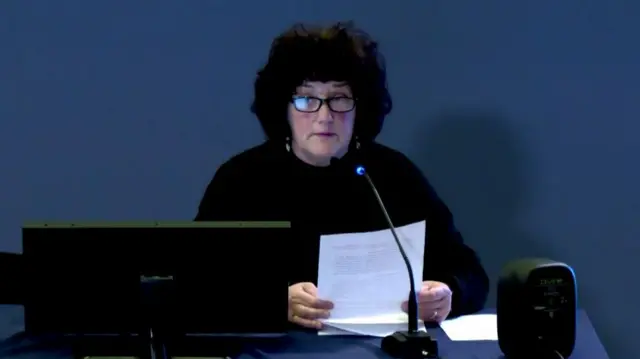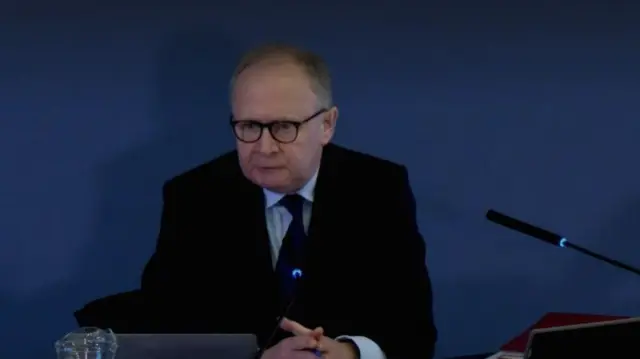Inquiry finishes for the weekpublished at 16:41 GMT 13 February
That's our live coverage finished for the day. We'll continue our coverage on BBC News NI when the inquiry resumes at 11:00 GMT on Monday. Join us then.
Today's live page was written by Stephen Greer and Holly Fleck, and edited by Hayley Halpin.
Thanks for joining us.

